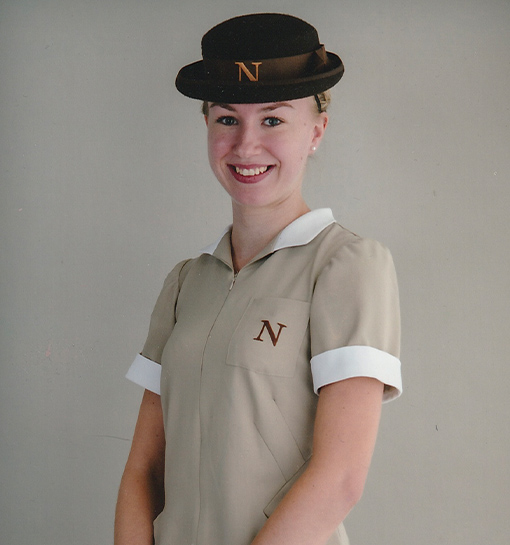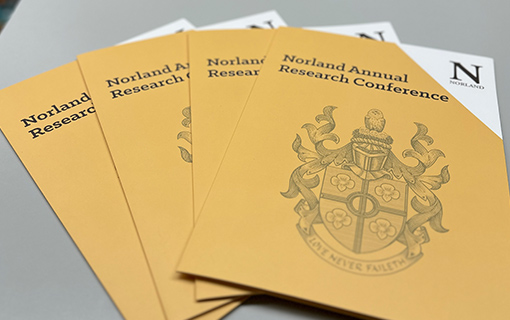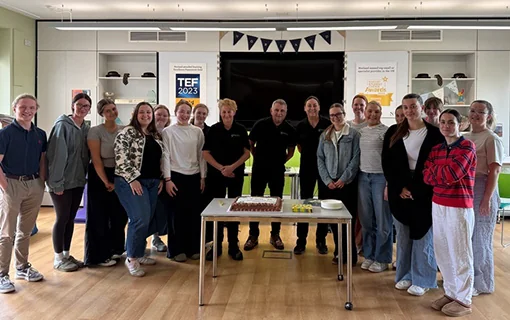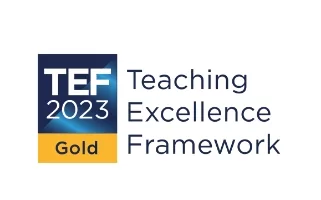130 careers spotlight: Norlander Evie shares her journey to forest school lead
5 April 2023

As part of Norland’s 130th year celebrations, we are highlighting the diversity of careers available to our qualified graduates. Evie (Set 38) graduated as a Norlander in 2018 and works as a forest school lead in Wiltshire. We caught up with her to hear more about her career since gaining her professional title.
During her “intense but extremely rewarding Norland training,” which Evangeline began in September 2014, one placement in particular, a forest school in Wiltshire, “imprinted deeply on my practice.” After being exposed to so many different types of provision within the early years sector, during her four years at Norland (including her Newly Qualified Nanny employment placement in London), Evie returned to one of her original placements to complete a Level 3 Forest School Leader qualification and now works as a Forest School Lead in a nursery and preschool.
Evie remembers her training fondly. “It enabled me to explore a variety of childcare routes, both nurseries and school-based, in private and state settings; my dedication to children learning through outdoor activity is informed by this.” Norland students complete over 1,200 hours of placements during the three years they are in college, with their first placement taking place within the first six weeks of their first year. They then embark on a full-time, paid Newly Qualified Nanny (NQN) placement year in their fourth year of training. There are no tuition fees payable in this final year as their support and assessment is paid through their employment fees.
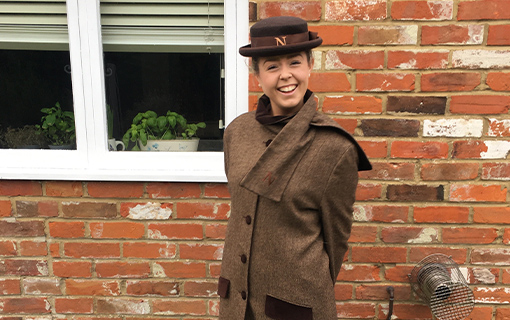
Norland placements enable students to put into practice the theoretical and practical understanding of child development they acquire from lectures. Evie continues to practice Norland lecture material in her career today. “The most important aspect of my Norland training for my career is the pedagogical approach to learning through play, trial and error and using what is available in the moment to continue their learning.” Evie believes that “This approach is linked to my Forest School training and how the child is able to explore freely, with the adult present to observe and to interact if the child should require it.”
Evie’s workday sees her and the 25 children in her care “outside for up to seven hours a day, come rain or shine. The children eat, drink, and play outdoors in our meadow, woodland, and stable area. We are also able to host children around the fire pit and teach them fire safety skills and cooking on fire.” The course at Norland incorporates research about outdoor learning and the part it plays in developing children’s independence and resilience. Encouraging children to understand the importance of outdoor play has been an essential component of Norland training since its infancy. During the years preceding the Great War, founder Emily Ward owned a coastal home in Sussex, Little Hallard’s Estate, where Norland nurses (as they were then known) and the children in their care would spend the summer days outdoors enjoying the seaside, Norland students have recently started to attend a beach school, carrying on this tradition.
“I work with children who will be starting mainstream education in September 2023; therefore, I am focused on laying the foundations for later literacy and numeracy as they are able to explore their early understanding of mathematics and general independence in a natural environment.” In her daily practice, Evie uses all that she learned she learned during her Norland training to not only to deliver the best- possible care to the children, but also in working collaboratively with colleagues to support the child and interact with their parents. “From weekly planning with my team, to holding meetings with staff members, to liaising with parents throughout the day, the Norland training has set a standard which I work towards within my role. It has also enabled me to see opportunities for development wherever possible, helping to provide young children with the best outdoor learning experience I can strive for.”
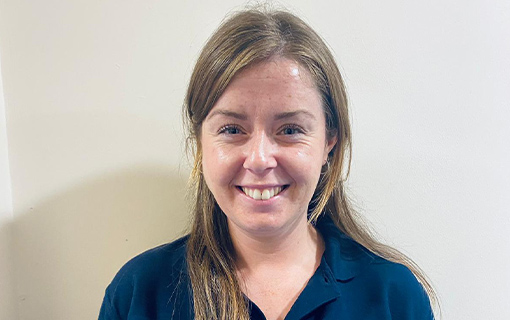
Since the pandemic lockdowns, the importance of outdoor play has been emphasised. Evie’s diverse Norland training has meant she was able to adapt to support her charges both during the long lockdown periods, and today whilst children adjust to a life beyond the home. “I gained a beneficial skillset which continued to develop as I gained more experience after graduating. I use my training daily in my practice to help children in my care.”
Evie believes it is more important now than ever that “the method of learning alongside nature is vital for children in a growing technological world.” Learning to engage with nature and the freedom this provides is essential for early development. Leading a team who encourage children to learn through exploration, for Evie is “a chance she could never have missed, my Norland training trained me for an array of opportunities and helped me to thrive in various childcare endeavours like this one.”
Evie encourages future Norlanders to “believe in yourself and your team, but never be afraid to ask for help, Norland encourages you to see a standard which we should all aspire to always achieve.”


